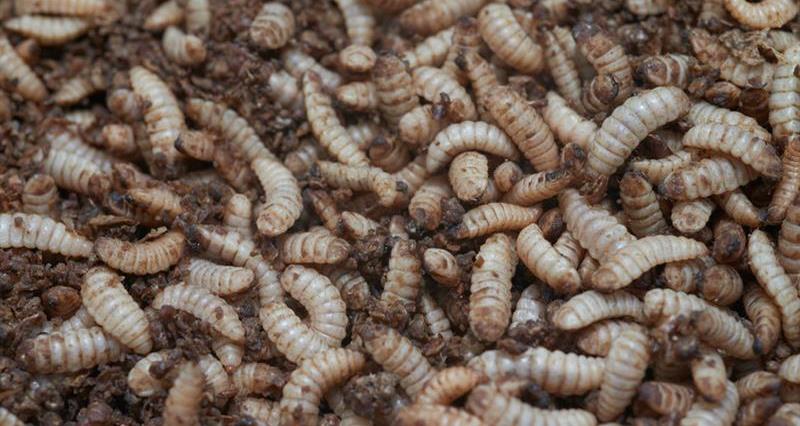We have participated in a number of 'task and finish' groups making recommendations on particular aspects of technology and information exchange to the Food and Drink Sector Council through its Agricultural Productivity Working Group.
Scale-up production and use of insect protein in poultry and other livestock feed is one of these areas of transformative technology that we believe could make a step-change breakthrough in the efficient use of resources in agriculture.
This week, the Insect Biomass Conversion Task & Finish Group called on the Government to support insect protein as an attractive new and sustainable source of protein for food production.
Introducing insect protein to supplement common alternatives like fishmeal or soya provides a more sustainable way to meet UK and worldwide protein needs, avoiding unwanted land use change and meeting the challenge faced by aquaculture with limited global supplies of marine feed ingredients. In the UK, this innovative new industry could be worth £1.0bn, generating an estimated 3,300 direct jobs and 600 indirect jobs in just five years.
The group's first UK market report makes the case for the UK Government to support insect biomass conversion, with a number of key recommendations:
• Government to issue a national statement of support
• Government and industry to support a central body that could drive rapid sector development for the UK
• Government and industry to collaborate to secure dedicated funds to drive market development
• Government to lead on delivering insect biomass legislation and regulation
• Government to devise and provide short term fiscal incentives for early adopters
Thomas Wornham, NFU Poultry Board chairman and a member of the group, said: "Our members are extremely interested in being able to source sustainable alternative proteins from closer to home. This is potentially a huge opportunity for the poultry sector and we in the UK should be leading on the development. It potentially cuts our cost of production, gives us access to a very natural supply of quality protein and improves our competitiveness."
Andrew Swift, CEO of Fera and coordinator of the Insect Biomass Conversion Task & Finish Group said: “Insect protein production can be a big part of the solution to the global protein deficit for sustainable rearing of livestock. This innovative and ‘clean’ industry has huge economic and environmental potential. It is critical that Government acts swiftly to ensure the UK does not lose further ground in this rapidly developing global market.”
Download a copy of the Task & Finish Group report here, and an explanatory ‘Frequently Asked Questions’ sheet here.
Members of the Insect Biomass Task & Finish Group represent key stakeholders across the Insect Biomass value chain and are committed to collaborating in order to deliver insect production at scale in the UK.
The group members are: Fera Science Limited (lead), Durham University, Entomics, Anpario, AgriProtein, UK FPPA, Zero Waste Scotland, (York, North Yorks, East Riding) LEP, British Poultry Council, Tesco, McDonalds, PFMA, NFU, Entocycle, CIEL, Humphrey Feeds & Pullets, AIC, NPA, Minerva, Multibox, Scottish Aquaculture Innovation Centre and Beta Bugs.
Read more...
